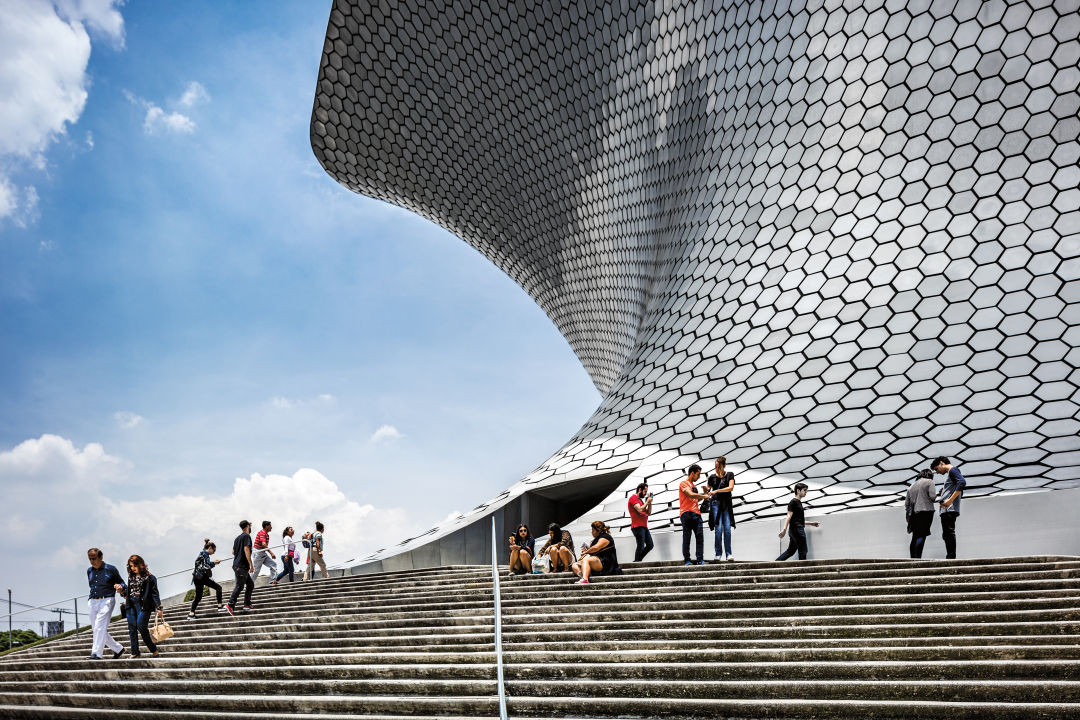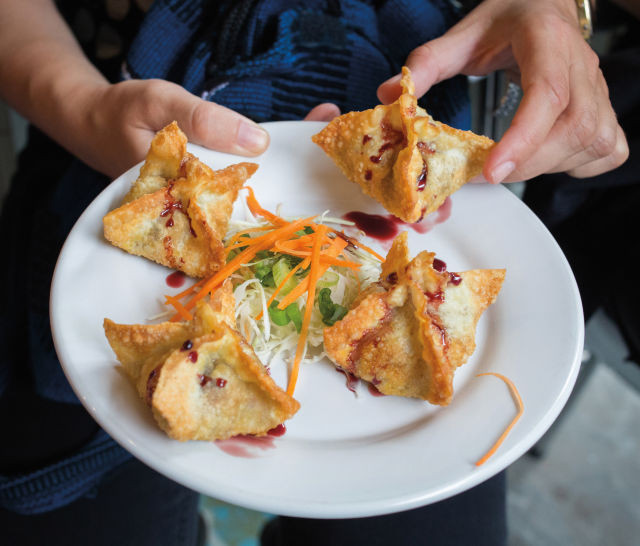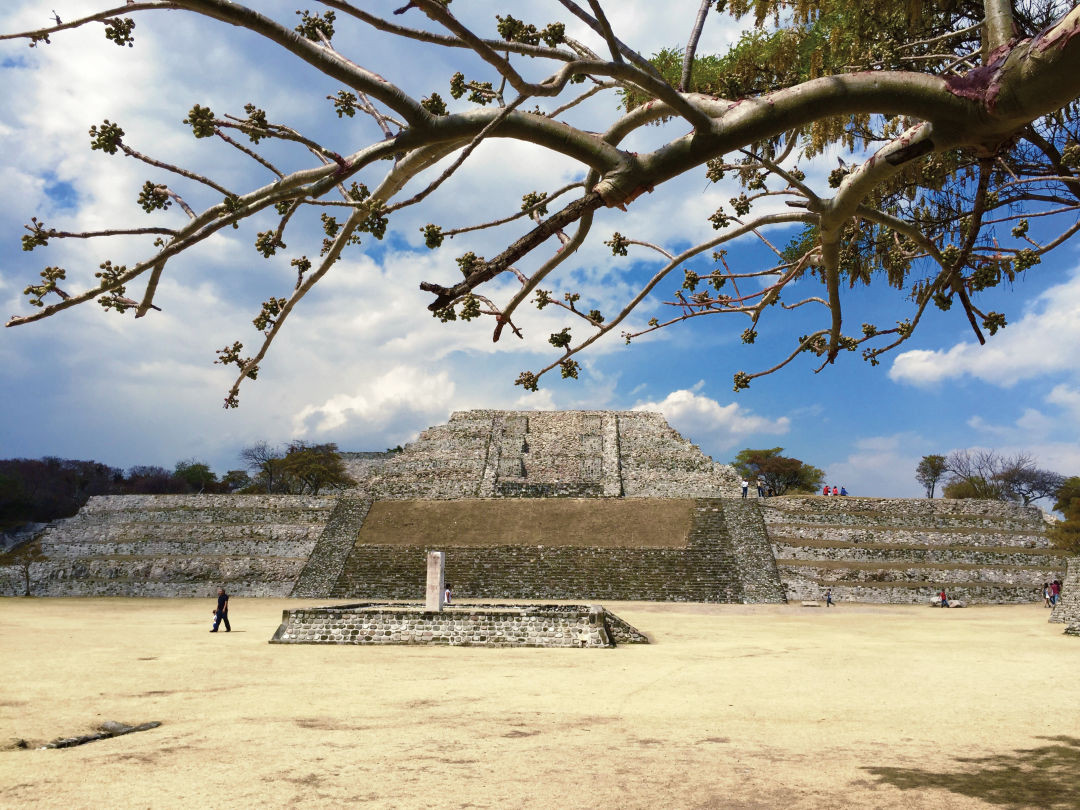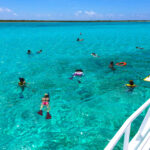What Time Is It Right Now In Mexico, especially for gay travelers planning their next adventure? Gaymexico.net is here to provide you with the accurate time and so much more, ensuring you stay connected, informed, and ready to explore Mexico’s vibrant LGBTQ+ scene. This article will uncover Mexico’s dazzling attractions and hidden gems, so prepare for a trip filled with cultural discovery, thrilling nightlife, and a warm, welcoming atmosphere.
1. Understanding Time Zones in Mexico
What time is it right now in Mexico? Mexico spans multiple time zones, so the answer depends on the specific location. Understanding these time zones is crucial for planning your travels and staying on schedule.
Mexico observes four primary time zones:
- Pacific Time Zone (Zona Noroeste): UTC-8. This zone includes Baja California.
- Mountain Time Zone (Zona Pacífico): UTC-7. States like Sonora, Chihuahua, Nayarit, Sinaloa.
- Central Time Zone (Zona Centro): UTC-6. Most of Mexico, including Mexico City, Guadalajara, and Monterrey.
- Southeast Time Zone (Zona Sureste): UTC-5. Quintana Roo (Cancun, Playa del Carmen, Tulum).
Knowing the time zone of your destination within Mexico will help you avoid confusion when scheduling activities, making reservations, or coordinating travel plans. It is also a very important detail for planning events during vacations.
 Colorful buildings in Guanajuato, Mexico, showcasing the city's vibrant architecture and charm
Colorful buildings in Guanajuato, Mexico, showcasing the city's vibrant architecture and charm
1.1. Why Time Zones Matter for LGBTQ+ Travelers
Time zones matter greatly, particularly for LGBTQ+ tourists arranging activities in Mexico. Coordinating travel plans, making dinner reservations, or attending gay pride events requires an understanding of local time. For instance, when you want to attend a drag show in Puerto Vallarta, you need to know the precise time to plan your evening properly.
1.2. Daylight Saving Time in Mexico
Daylight Saving Time (DST) in Mexico has been inconsistent. In 2022, Mexico eliminated DST for most of the country, except for municipalities near the U.S. border.
- Border Municipalities: Locations near the U.S. border still observe DST to align with the U.S. This includes cities like Tijuana, Ciudad Juarez, and Mexicali.
- Quintana Roo: This state does not observe DST and remains on UTC-5 year-round.
Staying updated on these changes is essential to avoid confusion during your travels.
1.3. Tools for Checking the Current Time
Numerous online resources can help you determine the precise time in Mexico. Time zone converter websites are a great resource. If you have an iPhone, you can add clocks with different timezones to the home screen. These tools are invaluable for planning your trip.
2. Exploring LGBTQ+ Friendly Destinations in Mexico
Mexico offers a variety of destinations known for their welcoming and inclusive atmosphere towards LGBTQ+ travelers. Let’s explore some of the top spots:
- Puerto Vallarta: Often called the “San Francisco of Mexico,” Puerto Vallarta is known for its thriving gay scene, beautiful beaches, and vibrant nightlife.
- Mexico City: As the capital, Mexico City boasts a rich cultural history, numerous LGBTQ+ friendly establishments, and a progressive atmosphere.
- Cancun: While famous for its resorts, Cancun also offers gay-friendly areas with inclusive hotels, clubs, and beaches.
- Guadalajara: This city combines traditional Mexican culture with a growing LGBTQ+ scene, providing a unique and authentic experience.
- Tulum: Known for its stunning Mayan ruins and bohemian vibe, Tulum offers a more laid-back, inclusive environment.
2.1. Puerto Vallarta: Mexico’s Gay Paradise
Puerto Vallarta has earned its reputation as one of the most gay-friendly cities in the world. Its “Zona Romantica” is the heart of the LGBTQ+ scene, offering a mix of:
- Gay Bars and Clubs: From lively dance clubs to cozy bars, there’s something for everyone.
- Beachfront Resorts: Several resorts cater specifically to LGBTQ+ travelers, providing a comfortable and welcoming stay.
- Cultural Events: Puerto Vallarta hosts numerous gay pride events, festivals, and performances throughout the year.
According to a study by the UCLA Williams Institute, Puerto Vallarta has a significant LGBTQ+ population and a high level of acceptance and visibility.
2.2. Mexico City: Culture and Inclusivity
Mexico City offers a blend of culture, history, and modern inclusivity. Key attractions include:
- Zona Rosa: This neighborhood is the city’s main gay district, featuring a variety of bars, clubs, and restaurants.
- LGBTQ+ Cultural Events: Mexico City hosts one of the largest Pride parades in Latin America, drawing huge crowds.
- Museums and Historical Sites: Explore the city’s rich history and art scene, with many venues offering LGBTQ+ themed exhibits and events.
The city’s progressive laws and open-minded attitudes make it a safe and enjoyable destination for LGBTQ+ travelers.
 Aerial view of Zona Rosa in Mexico City, highlighting the area's vibrant LGBTQ+ scene and bustling nightlife
Aerial view of Zona Rosa in Mexico City, highlighting the area's vibrant LGBTQ+ scene and bustling nightlife
2.3. Cancun: Beaches and Gay-Friendly Resorts
While Cancun is famous for its tourist resorts, it also features several gay-friendly options:
- Inclusive Resorts: Many resorts in Cancun welcome LGBTQ+ guests and offer inclusive amenities.
- Gay Beaches: Certain beach areas are known to be more popular among LGBTQ+ travelers.
- Nightlife: Cancun’s nightlife scene includes gay bars and clubs that cater to a diverse crowd.
While it may not be as overtly gay as Puerto Vallarta or Mexico City, Cancun offers a comfortable and enjoyable experience for LGBTQ+ visitors.
2.4. Guadalajara: Tradition and Modernity
Guadalajara provides a unique cultural experience with a growing LGBTQ+ scene:
- Gay Bars and Clubs: The city has a developing gay nightlife scene, with bars and clubs offering a mix of traditional and modern entertainment.
- Cultural Attractions: Explore Guadalajara’s historical sites, museums, and culinary scene.
- Local Pride Events: Guadalajara hosts annual pride events that celebrate the LGBTQ+ community.
The city’s blend of tradition and modernity makes it an interesting destination for LGBTQ+ travelers seeking an authentic Mexican experience.
2.5. Tulum: Bohemian Vibe and Inclusivity
Tulum is known for its laid-back atmosphere, Mayan ruins, and inclusive vibe:
- Eco-Friendly Resorts: Many resorts in Tulum focus on sustainability and inclusivity, attracting a diverse crowd.
- Beautiful Beaches: Tulum’s beaches are known for their natural beauty and relaxed atmosphere.
- Wellness and Spirituality: The town offers various wellness retreats and spiritual activities that embrace diversity.
Tulum is an ideal destination for LGBTQ+ travelers seeking a tranquil and accepting environment.
3. Planning Your Trip: Essential Tips
Planning a trip to Mexico involves several key steps. Here’s how to ensure a smooth and enjoyable vacation:
- Book Accommodations: Choose LGBTQ+ friendly hotels or resorts in your destination.
- Research Local Laws: Familiarize yourself with Mexico’s laws and regulations regarding LGBTQ+ rights.
- Plan Activities: Look for gay bars, clubs, cultural events, and tours that cater to the LGBTQ+ community.
- Stay Connected: Ensure you have reliable internet access to stay informed and in touch with others.
- Pack Appropriately: Pack for the climate and activities you plan to engage in.
3.1. Booking LGBTQ+ Friendly Accommodations
When booking accommodations, consider the following:
- Gay-Friendly Hotels: Many hotels actively promote their inclusivity and welcome LGBTQ+ guests.
- User Reviews: Check online reviews to see what other LGBTQ+ travelers have experienced.
- Location: Choose a location that is close to gay bars, clubs, and other attractions.
Websites like Gaymexico.net can provide recommendations for LGBTQ+ friendly accommodations in various Mexican cities.
3.2. Understanding Local Laws and Customs
Mexico has made significant strides in LGBTQ+ rights. According to Human Rights Watch:
- Same-Sex Marriage: Legal throughout the country.
- Adoption Rights: Available to same-sex couples in many states.
- Anti-Discrimination Laws: Protect LGBTQ+ individuals in various areas, including employment and housing.
However, it’s important to be aware of local customs and attitudes, which may vary from region to region.
3.3. Staying Safe and Healthy
To ensure a safe and healthy trip:
- Travel Insurance: Purchase travel insurance that covers medical emergencies and other unforeseen events.
- Health Precautions: Consult with your doctor about necessary vaccinations and health precautions.
- Stay Aware of Your Surroundings: Be mindful of your surroundings and avoid risky situations.
- Emergency Contacts: Keep a list of emergency contacts, including local authorities and your embassy.
3.4. Getting Around Mexico
Mexico offers various transportation options:
- Flights: Domestic flights are a convenient way to travel between cities.
- Buses: An affordable option for long-distance travel.
- Taxis and Ride-Sharing: Available in most cities, but use reputable services and agree on a fare beforehand.
- Rental Cars: Provide flexibility for exploring at your own pace.
Consider your budget and travel style when choosing the best transportation method.
 A bustling street scene in Mexico, showcasing the vibrant culture and daily life of the city
A bustling street scene in Mexico, showcasing the vibrant culture and daily life of the city
4. Must-See Attractions and Activities
Mexico boasts a wide range of attractions and activities for LGBTQ+ travelers. Here are some highlights:
- Historical Sites: Explore ancient ruins like Teotihuacan and Chichen Itza.
- Beaches: Relax on the beautiful beaches of Cancun, Puerto Vallarta, and Tulum.
- Cultural Events: Attend local festivals, pride parades, and art exhibitions.
- Nightlife: Experience the vibrant gay nightlife in cities like Mexico City and Puerto Vallarta.
- Culinary Adventures: Sample traditional Mexican cuisine at local restaurants and street food stalls.
4.1. Exploring Ancient Ruins
Mexico is home to some of the world’s most impressive ancient ruins:
- Teotihuacan: Located near Mexico City, this ancient city features massive pyramids and temples.
- Chichen Itza: Located in the Yucatan Peninsula, this Mayan city is famous for its iconic pyramid, El Castillo.
- Tulum: Overlooking the Caribbean Sea, these Mayan ruins offer stunning views and a glimpse into ancient history.
Visiting these sites provides a fascinating insight into Mexico’s rich cultural heritage.
4.2. Enjoying Mexico’s Beaches
Mexico’s coastline offers a variety of beautiful beaches:
- Cancun: Known for its white sand beaches and turquoise waters.
- Puerto Vallarta: Features gay-friendly beaches with a lively atmosphere.
- Tulum: Offers secluded beaches with a bohemian vibe.
Whether you’re looking to relax, swim, or engage in water sports, Mexico’s beaches have something for everyone.
4.3. Immersing in Cultural Events
Mexico’s cultural events provide a vibrant and immersive experience:
- Pride Parades: Held in various cities throughout the year, celebrating LGBTQ+ pride and diversity.
- Day of the Dead: A traditional Mexican holiday that honors deceased loved ones.
- Art Festivals: Showcasing local and international artists, often with LGBTQ+ themes.
These events offer a unique opportunity to experience Mexican culture and connect with the local community.
4.4. Experiencing the Nightlife
Mexico’s nightlife scene is diverse and exciting:
- Mexico City: Offers a wide range of gay bars and clubs in the Zona Rosa.
- Puerto Vallarta: Known for its lively gay nightlife in the Zona Romantica.
- Guadalajara: Features a developing gay nightlife scene with a mix of traditional and modern entertainment.
Whether you’re looking to dance, enjoy cocktails, or socialize, Mexico’s nightlife has something for every taste.
4.5. Savoring Mexican Cuisine
Mexican cuisine is a culinary delight:
- Tacos: A staple of Mexican cuisine, with endless variations.
- Mole: A rich and complex sauce made from chili peppers, spices, and chocolate.
- Ceviche: A seafood dish marinated in citrus juice.
Exploring local restaurants and street food stalls is a must for any visitor to Mexico.
5. Connecting with the LGBTQ+ Community
Connecting with the LGBTQ+ community in Mexico can enhance your travel experience. Here are some ways to do so:
- Online Forums and Groups: Join online forums and social media groups to connect with local LGBTQ+ individuals and travelers.
- Community Centers: Visit local LGBTQ+ community centers for resources and information.
- Events and Meetups: Attend LGBTQ+ events and meetups to connect with others in person.
- Apps and Websites: Utilize apps and websites designed to connect LGBTQ+ travelers with local communities.
5.1. Online Resources
Various online resources can help you connect with the LGBTQ+ community in Mexico:
- Gaymexico.net: A comprehensive website providing information and resources for LGBTQ+ travelers in Mexico.
- Social Media Groups: Facebook groups and other social media platforms can connect you with local LGBTQ+ individuals and travelers.
- Travel Forums: Online travel forums often have sections dedicated to LGBTQ+ travel, where you can ask questions and get advice.
5.2. Local Community Centers
Visiting local LGBTQ+ community centers can provide valuable resources and connections:
- Information and Support: Community centers offer information and support services for LGBTQ+ individuals.
- Events and Activities: Many centers host events and activities that are open to visitors.
- Networking Opportunities: Community centers provide opportunities to meet and connect with local LGBTQ+ individuals.
5.3. Apps and Websites for LGBTQ+ Travelers
Several apps and websites are designed to connect LGBTQ+ travelers with local communities:
- Grindr: A popular dating app used by gay and bisexual men.
- Tinder: A mainstream dating app that allows you to specify your sexual orientation and gender identity.
- Lex: A text-based dating app for queer people.
- Hornet: A social networking app for gay, bi, and curious men.
- Scruff: A dating app for gay, bi, trans, and queer men.
- HER: A dating app for lesbian, bi, and queer women.
- Bumble: A dating app where women make the first move.
These platforms can help you connect with locals and other travelers during your trip.
6. Staying Updated: News and Events
Staying updated on the latest news and events is essential for LGBTQ+ travelers in Mexico. Here’s how to stay informed:
- Local News Outlets: Follow local news outlets for updates on events, laws, and community issues.
- LGBTQ+ Media: Subscribe to LGBTQ+ media outlets for news and information relevant to the community.
- Social Media: Follow LGBTQ+ organizations and influencers on social media for real-time updates.
- Gaymexico.net: Regularly check Gaymexico.net for the latest news and events affecting LGBTQ+ travelers in Mexico.
6.1. Following Local News
Following local news outlets can provide valuable information on current events and issues:
- Local Newspapers: Read local newspapers to stay informed about community news and events.
- Local TV Stations: Watch local TV stations for news coverage and community announcements.
- Online News Websites: Visit online news websites for up-to-date information on local issues.
6.2. Subscribing to LGBTQ+ Media
Subscribing to LGBTQ+ media outlets can provide relevant news and information:
- LGBTQ+ Magazines: Read LGBTQ+ magazines for articles and features on community issues.
- LGBTQ+ Websites: Visit LGBTQ+ websites for news, information, and resources.
- LGBTQ+ Blogs: Follow LGBTQ+ blogs for personal perspectives and insights on community issues.
6.3. Utilizing Social Media
Social media can be a powerful tool for staying informed:
- Follow LGBTQ+ Organizations: Follow LGBTQ+ organizations on social media for updates on events and issues.
- Follow LGBTQ+ Influencers: Follow LGBTQ+ influencers for personal perspectives and insights.
- Join Social Media Groups: Join social media groups for discussions and information sharing.
7. Addressing Common Concerns
Addressing common concerns can help LGBTQ+ travelers feel more confident and prepared for their trip to Mexico:
- Safety: Understand safety precautions and avoid risky situations.
- Discrimination: Know your rights and how to respond to discrimination.
- Cultural Sensitivity: Be respectful of local customs and traditions.
- Language Barriers: Learn basic Spanish phrases or use translation tools.
7.1. Ensuring Personal Safety
To ensure personal safety:
- Avoid Risky Areas: Avoid areas known for high crime rates.
- Be Aware of Your Surroundings: Stay mindful of your surroundings and avoid walking alone at night.
- Keep Valuables Secure: Keep valuables secure and avoid displaying expensive items.
- Trust Your Instincts: Trust your instincts and avoid situations that make you feel uncomfortable.
7.2. Understanding and Addressing Discrimination
While Mexico has made progress in LGBTQ+ rights, discrimination can still occur. It’s important to:
- Know Your Rights: Understand your rights under Mexican law.
- Report Incidents: Report incidents of discrimination to local authorities or LGBTQ+ organizations.
- Seek Support: Seek support from LGBTQ+ organizations or community centers if you experience discrimination.
7.3. Practicing Cultural Sensitivity
Practicing cultural sensitivity is essential for respectful travel:
- Learn Basic Spanish Phrases: Learning basic Spanish phrases can help you communicate with locals.
- Respect Local Customs: Be respectful of local customs and traditions.
- Dress Appropriately: Dress modestly when visiting religious sites or conservative areas.
- Be Mindful of Public Displays of Affection: Be mindful of public displays of affection, as attitudes may vary.
7.4. Overcoming Language Barriers
To overcome language barriers:
- Learn Basic Spanish Phrases: Learning basic Spanish phrases can help you communicate with locals.
- Use Translation Tools: Utilize translation apps or devices to communicate more effectively.
- Carry a Phrasebook: Carry a Spanish phrasebook for quick reference.
- Ask for Help: Don’t hesitate to ask for help from locals or hotel staff who speak English.
8. Resources for LGBTQ+ Travelers in Mexico
Numerous resources are available to support LGBTQ+ travelers in Mexico:
- Gaymexico.net: A comprehensive website providing information and resources for LGBTQ+ travelers in Mexico.
- LGBTQ+ Organizations: Local and international LGBTQ+ organizations offer support and resources.
- Travel Guides: Travel guides specifically designed for LGBTQ+ travelers can provide valuable information.
- Community Centers: Local community centers offer resources and support services for LGBTQ+ individuals.
8.1. Online Travel Guides
Online travel guides provide valuable information and recommendations:
- LGBTQ+ Travel Blogs: Read LGBTQ+ travel blogs for personal perspectives and insights.
- Travel Websites: Visit travel websites that offer sections dedicated to LGBTQ+ travel.
- Online Forums: Utilize online forums to ask questions and get advice from other travelers.
8.2. Local and International Organizations
Local and international LGBTQ+ organizations offer support and resources:
| Organization | Description |
|---|---|
| All Out | Mobilizes thousands of people to stand up for LGBTQ+ rights. |
| It Gets Better Project | Shares stories and provides support to young LGBTQ+ people. |
| The Trevor Project | Provides crisis intervention and suicide prevention services to LGBTQ+ youth. |
| GLAAD (Gay & Lesbian Alliance Against Defamation) | Works to shape the narrative and provoke dialogue that leads to cultural change. |
| Human Rights Watch | Investigates and reports on human rights abuses affecting LGBTQ+ people worldwide. |
| National Center for Lesbian Rights (NCLR) | Advocates for LGBTQ+ rights through litigation, legislation, and public education. |
| Lambda Legal | Fights for LGBTQ+ rights through litigation and public policy work. |
These organizations can provide assistance and support during your trip.
8.3. Community Centers
Local community centers offer resources and support services:
- Information and Support: Community centers provide information and support services for LGBTQ+ individuals.
- Events and Activities: Many centers host events and activities that are open to visitors.
- Networking Opportunities: Community centers provide opportunities to meet and connect with local LGBTQ+ individuals.
9. Sample Itineraries for LGBTQ+ Travelers
To help you plan your trip, here are some sample itineraries for LGBTQ+ travelers in Mexico:
- Puerto Vallarta: A week of beach relaxation, nightlife, and cultural exploration.
- Mexico City: A cultural immersion, exploring historical sites, museums, and LGBTQ+ neighborhoods.
- Cancun: A resort getaway with beach time, water sports, and gay-friendly nightlife.
- Guadalajara: A cultural experience, exploring historical sites and experiencing a growing LGBTQ+ scene.
- Tulum: A wellness retreat, with beach relaxation, yoga, and exploration of Mayan ruins.
9.1. Puerto Vallarta: A Week of Sun and Fun
- Day 1: Arrive in Puerto Vallarta and check into your hotel.
- Day 2: Relax on the beach and explore the Zona Romantica.
- Day 3: Take a boat tour to nearby beaches and snorkeling spots.
- Day 4: Visit the Vallarta Botanical Gardens.
- Day 5: Experience the nightlife in the Zona Romantica.
- Day 6: Take a cooking class and learn to make traditional Mexican dishes.
- Day 7: Depart from Puerto Vallarta.
9.2. Mexico City: A Cultural Immersion
- Day 1: Arrive in Mexico City and check into your hotel.
- Day 2: Explore the historical center and visit the Metropolitan Cathedral.
- Day 3: Visit the National Museum of Anthropology.
- Day 4: Explore the LGBTQ+ neighborhood of Zona Rosa.
- Day 5: Visit the Frida Kahlo Museum.
- Day 6: Take a day trip to the ancient city of Teotihuacan.
- Day 7: Depart from Mexico City.
 Pre-Columbian ruins at Xochicalco, offering a glimpse into Mexico's ancient history and cultural heritage
Pre-Columbian ruins at Xochicalco, offering a glimpse into Mexico's ancient history and cultural heritage
9.3. Cancun: A Relaxing Getaway
- Day 1: Arrive in Cancun and check into your resort.
- Day 2: Relax on the beach and swim in the turquoise waters.
- Day 3: Take a snorkeling or diving tour to explore the coral reefs.
- Day 4: Visit the Mayan ruins of Chichen Itza.
- Day 5: Experience the nightlife in Cancun’s gay-friendly areas.
- Day 6: Take a day trip to the island of Isla Mujeres.
- Day 7: Depart from Cancun.
10. Frequently Asked Questions (FAQs)
1. What time is it right now in Mexico City?
The current time in Mexico City, which is in the Central Time Zone (Zona Centro), is UTC-6. Check an online time zone converter for the precise time.
2. Is Mexico safe for LGBTQ+ travelers?
Yes, Mexico is generally safe for LGBTQ+ travelers, especially in popular destinations like Puerto Vallarta and Mexico City. However, it’s always wise to stay aware and respect local customs.
3. What are the best gay beaches in Mexico?
Some of the best gay beaches in Mexico can be found in Puerto Vallarta, particularly in the Zona Romantica.
4. Are same-sex marriages legal in Mexico?
Yes, same-sex marriage is legal throughout Mexico.
5. What should I pack for a trip to Mexico?
Pack light clothing, swimwear, sunscreen, insect repellent, and any necessary medications. Also, consider packing a Spanish phrasebook or translation app.
6. How can I find LGBTQ+ friendly accommodations in Mexico?
Use online travel platforms or websites like Gaymexico.net to find LGBTQ+ friendly hotels and resorts.
7. What are some popular LGBTQ+ events in Mexico?
Popular events include Pride parades in Mexico City and Guadalajara, as well as various festivals and parties in Puerto Vallarta.
8. How can I stay connected with the LGBTQ+ community in Mexico?
Join online forums and social media groups, visit local community centers, and use apps designed to connect LGBTQ+ travelers with local communities.
9. What are some must-see cultural attractions in Mexico?
Must-see attractions include ancient ruins like Teotihuacan and Chichen Itza, as well as museums, historical sites, and cultural events.
10. What are some tips for traveling safely in Mexico?
Avoid risky areas, be aware of your surroundings, keep valuables secure, and trust your instincts. Also, make sure you have travel insurance and emergency contacts.
Mexico welcomes LGBTQ+ travelers with open arms, offering a rich mix of culture, adventure, and inclusivity. Knowing “what time is it right now in Mexico” is just the beginning of your journey. With the right planning and resources, you can create unforgettable memories. Visit Gaymexico.net for more detailed guides, event listings, and community connections, and start planning your Mexican getaway today!
Address: 3255 Wilshire Blvd, Los Angeles, CA 90010, United States.
Phone: +1 (213) 380-2177.
Website: gaymexico.net.

